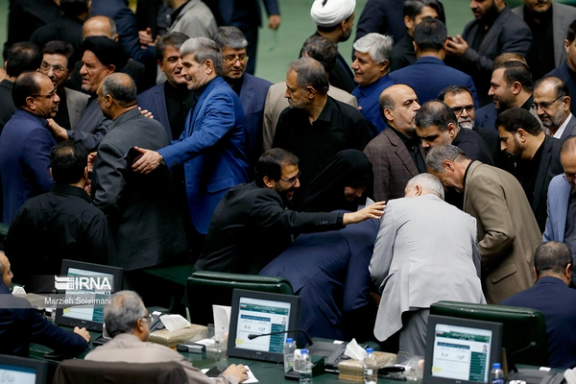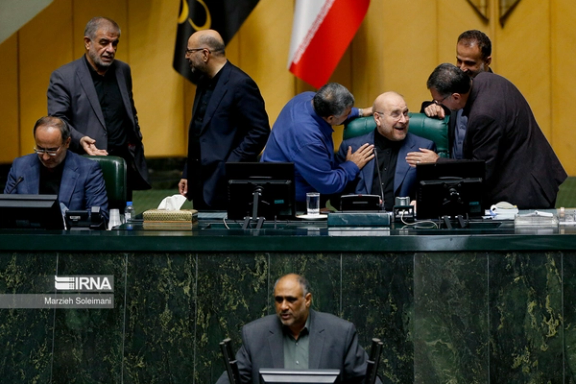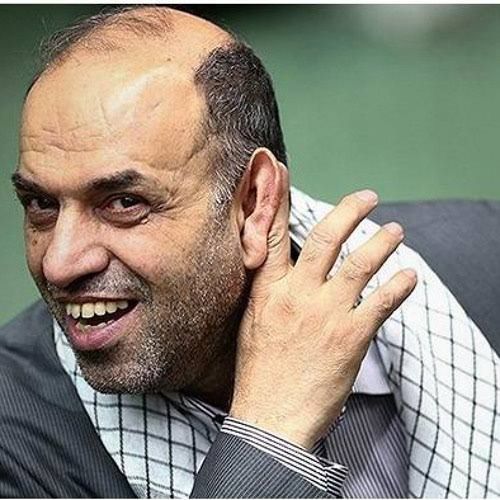Iran’s Hardliners Will Win Parliament, Conservative Says

As a power struggle among conservatives in Iran continues, a leading commentator predicts the next parliament speaker will come from the hardliner Paydari group.

As a power struggle among conservatives in Iran continues, a leading commentator predicts the next parliament speaker will come from the hardliner Paydari group.
Reformist daily Etemad revealed this week that a new round of political struggles over power is underway between Paydari and parliament (Majles) Speaker Mohammad Bagher Ghalibaf. The rivalry extends beyond the Majles election and partly revolves around competition for Iran's presidency in 2025. The feud is discernible in pro-Ghalibaf daily Sobh-e No and Paydari's mouthpiece Raja News websites.
The newspaper wrote that Ghalibaf and Paydari's media fleets have been exchanging accusations and counteraccusations throughout the month of July. The daily added that the two were on the verge of a coalition ahead of the March 2024 parliamentary elections, but in the absence of Iran's reformists on the scene, they started to compete against each other.
Iran’s reformists who were mostly barred from competing in the 2020 parliamentary elections have not decided to register for the upcoming vote, because they are not sure if conservatives controlling the electoral system will allow them to compete.
Etemad also wrote that the rivalry goes beyond the Majles election and is partly about competition over Iran's presidency in 2025. Raja News accused Sobh-e No of belittling what it called Raisi's achievement in making Iran a member of the Shanghai Cooperation Organization. Sobh-e No responded by jokingly calling the Paydari a bunch of super-revolutionaries working against Ghalibaf.

While the media battle continues, a conservative commentator and a former editor of the Kayhan, Mohammad Mohajeri told Etemad Online that if the upcoming elections will become a rivalry among conservatives without reformists playing a part in the elections, Paydari is most likely to win the parliament in March.
"We can congratulate Morteza Agha-Tehrani as the next speaker of the Majles even today," he said. Agha-Tehran was previously the leader of the Paydari Party but stepped down due to allegations about having US citizenship or permanent residency and was replaced by former IRGC officer and Interior Minister Sadegh Mahsouli. Nonetheless, many inside and outside the party believe Agha-Tehran has the final say in the party.
Mohajeri further charged that Paydari operates like a business firm and is currently pretending to have the upper hand in Iranian politics in order to get concessions from other conservative groups.
He added that "Paydari candidates had an average of 250,000 votes in the 2020 parliamentary elections. They can win all the 30 seats for Tehran if others do not compete for any reason." Mohajeri further said, "For the same reason Paydari wants a low-turnout election in March."

While the parliament is sending the final months of its four-year term, some observers say it suffers from an unprecedented lack of influence and popularity. Former lawmaker Iraj Nadimi told Rouydad24 that not only the current members of the parliament cannot solve any of the country's problems, but they also keep creating new problems.
Nadimi said the Majles is incapable of supervising the government, and instead it is currently following the government. He added that despite Khamenei's support for the Majles, it is no longer trusted by the people.
"People in the streets, are generally unhappy about the parliament's performance because it cannot solve their problems, because its legislative agenda was not aimed at addressing challenges." Nadimi was likely referring to the economic crisis that has impoverished tens of millions of people and the regime’s unwillingness to reach a nuclear agreement with the West that could lift crippling economic sanctions.